CNN EXCLUSIVE: Juror B37 has more to reveal about the trial of George Zimmerman and how the not guilty verdict was reached. Watch Anderson Cooper 360, on CNN tonight at 8 ET.
(CNN) -- Here are some views written for CNN on the "not guilty' verdict in George Zimmerman's trial on charges of the murder of Trayvon Martin.
Omarosa: We whose loved ones were killed despair
The George Zimmerman "not guilty" verdict hit me very hard. I, like many Americans, watched the trial very closely, hoping that justice would be served in the shooting death of 17-year-old Trayvon Martin. I was not prepared for my deep emotional response to this shocking outcome.
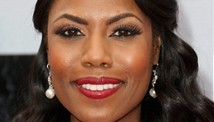 Omarosa O. Manigault
Omarosa O. Manigault Last year I rallied with other families, who like mine, had lost a loved one to gun violence. I joined the Rev. Al Sharpton, the Rev. Jesse Jackson and Trayvon Martin's family in Los Angeles. I connected instantly with Sabrina Fulton, Trayvon's mother, bonded by grief. I shared the story of my brother's murder during the rally to show the Martin family was not alone in their struggle or despair.
My brother Jack Thomas Manigault Jr. was shot and killed in cold blood on October 11, 2011. He was in his bed sleeping when a 22-year-old man forced his way into his home and killed him. What followed was a year-long bout with the judicial system. On April 24, 2012, on the eve of the murder trial, my family and I made the difficult decision to accept a plea deal from the defense. When faced with the daunting decision of whether to put my family and my brother's four sons through a very public trial, I opted not to.
My lawyer warned me because my brother was African American and his assailant white, the trial would be judged through a racial prism. My brother was not perfect, but Jack had been working to turn his life around. I was cautioned that my brother would have his character and past called into question and anything he had done as a young man could and would be used to justify his fate.
At times I questioned my decision to accept a plea deal. The judge assured my brother's killer, who pleaded guilty to aggravated murder and other charges, that a conviction at trial would have netted him a harsher sentence than one negotiated by prosecutors and defense attorneys. It was the risk that we as a family took to protect my brother from being characterized as just another black male fatality.
Sabrina Fulton stands for all of the mothers and families who have to face the painful reality that we may never find peace or justice in this judicial system for our loved ones. We should use this moment to examine the system that at times, like now, leaves many of us shocked and dismayed. I hope and pray that some day things will get better.
Omarosa O. Manigault is assistant pastor at Weller Street Missionary Baptist Church in Los Angeles and former reality TV star.
Rice: Trayvon was killed for being young, male and black
Black men and boys are conditioned to be invisible. Our visibility scares folk. It scares white people and many "respectable" black people, too. It scared George Zimmerman. And George Zimmerman killed Trayvon Martin because of his fear, and because of the cowardice at the core of his special type of being afraid.
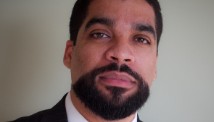 David Wall Rice
David Wall Rice Trayvon Martin was profiled on the night he was killed. There is little room for debate here. And on Saturday night, six jurors in Sanford, Florida indicated that it is all right to think a 17-year-old black boy is a threat just for being who he is. It is OK to shoot him through the heart, to end his life. It is legal to do it. It is justified, even if that black young man is an innocent, a child packing a beverage and a pack of candy. That mistake gets a pass.
Novelist Ralph Ellison explained so precisely, "They see only my surroundings, themselves, or figments of their imagination -- indeed, everything and anything except me." This is the every day reality of being a black man. We all know it, even if it's just deep down and covered up. Nonetheless, we go along with the disjointed dance of democracy and justice for all.
We know that black men and boys are understood to be a threat. Trayvon Martin and his family, and those who more squarely fit feared stereotypes, deserve justice. Fear of "them," of me, fear of my son, is a psycho-social distance bred from insecurity and has nothing to do with the "other."
"What are you without racism?" Toni Morrison asked Charlie Rose some years ago in an interview. We do well to follow her inquiries. "Are you any good? Are you still strong, still smart? Do you still like yourself?"
A knock-knock joke at the opening for the defense and the not-guilty verdict at the end show the level of respect that the Florida judicial system afforded Trayvon Martin's life. This is the racism that black boys and men consistently negotiate. Our lives, clearly, depend on negotiating it well. Those who argue counter are simply ignorant of the deeply embedded institutional and cultural racism here in the U.S.
Now comes the work that many of us are ready to undertake, or to recommit to. The work to be visible -- to step beyond the easy stereotypes that we play to and the ones that society affixes to us.
The work is beginning. Social media messages. Rallies on Sunday in New York City, Philadelphia, San Francisco, Los Angeles, Chicago, Washington, D.C., Atlanta and other cities across the country demonstrate the momentum of feeling against the terrible wrong of the Martin case, a wrong that threatens the liberties of us all.
-- David Rice is associate professor and chair of the Department of Psychology at Morehouse College.
LZ Granderson: Trayvon could have been my son
Hours before the George Zimmerman not-guilty verdict was announced, my partner and I were discussing ways to prevent our 16-year-old son from getting shot while jogging in the upper-middle-class, predominantly white neighborhood we had recently moved into.
 LZ Granderson
LZ Granderson I promise you, it was a very real conversation.
"Maybe we should get T-shirts and sweatshirts with the school's name on it," my partner said.
After the verdict -- it came as a punch to the stomach -- we thought maybe it was best if he only ran inside at the nearby gym.
This is what it means to be a parent of a young black man in America today: sleepless nights, courtesy of a cocktail of institutional racism, self-inflicted wounds and statistics.
Lots and lots of statistics.
About the too-high high school dropout rate among black youths, the distressingly high number of black men who are perpetrators -- and victims -- of violent crimes, the disproportionately steep incarceration rates for black men. Those who create our pop culture have learned to monetize that negative image, and some young black men are mesmerized by it, adopting it as their own. As a result, we are all susceptible to the same prejudicial thoughts that led George Zimmerman to view a 17-year-old boy with a hoodie on his head and a bag of candy in his hand as suspicious.
Read LZ's full commentary
Trayvon could have been my son -- and that scares the hell out of me. If, during this 16-month ordeal, that thought never crossed your mind, then you have no idea what it is like to be the parent of a young, black male in America. After the verdict, attorneys from both the prosecution and defense seemed to go out of their way in their press conferences to say race was not a factor, which sounded more like wishful thinking than accurate commentary.
-- LZ Granderson, who writes a weekly column for CNN.com, is a senior writer and columnist for ESPN the Magazine and ESPN.com.
Thernstrom: Obama's mistake on Trayvon Martin case
Every American can make his or her own judgment about whether justice was served by the verdict in the George Zimmerman murder trial but one thing we should all recognize: President Obama's interference in a local law enforcement matter was unprecedented and inappropriate, and he comes away from the case looking badly tarnished by his poor judgment.
 Abigail Thernstrom
Abigail Thernstrom "If I had a son, he'd look like Trayvon," the president said when asked about the case in the Rose Garden on March 23, 2012, after many had called for Zimmerman's arrest but several weeks before he was charged. "When I think about this boy, I think about my own kids."
In fact, if the president had a son, he would have been born to extraordinary privilege and raised with all the advantages of two very affluent and highly educated parents. He would have gone to tony private schools. His path in life would have been almost as dissimilar from Trayvon's as one could imagine.
Read Thernstom's full column
Yes, Obama's hypothetical son and Trayvon would have shared the same brown skin color. Would that have made them interchangeable? Not unless all brown-skinned boys are the same. Does the president really believe that?
The president's remarks created a clear impression that he was motivated by one of two factors, and we can only guess as to which, or what combination of the two, was at work here. One possibility is that this is merely another manifestation of the president's well-known narcissism.
The other, more troubling possibility is that the president surrendered to his political instincts.
On Sunday, the president did once again separate himself from the voices of anger. "We are a nation of laws and the jury has spoken," he said. But if his Justice Department brings civil rights charges against Zimmerman, the ugly racial politics of this prosecution will be undeniable.
Let us hope it never comes to that, for at that point a double tragedy will have occurred. Trayvon Martin will be dead, and our hopes for a president whose judgment is unaffected by his race will have been thoroughly and irreparably dashed.
-- Abigail Thernstrom is the vice chairwoman of the U.S. Commission on Civil Rights and an adjunct scholar at the American Enterprise Institute.
Brazile: Those who despair or delight in verdict are wrong
Like so many others, I am distraught. It will take many days to sort through my feelings and reactions to the verdict of not guilty in the Trayvon Martin case. Still, some thoughts and lessons are obvious, immediate and, in a sense, imperative.
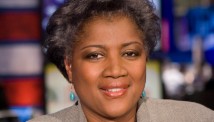 Donna Brazile
Donna Brazile First, those who delight in the verdict are wrong. There is no winner here. Trayvon Martin is still dead and George Zimmerman still must live with the fact that he killed without reason or cause. Here, the "should have" rules: He should have stayed in the truck.
Those who react to the verdict with despair are wrong. We work hard for justice in this world, but we, being human, are flawed. We will make mistakes. The law is only our best approximation of justice, and the law needs constant revision. But doing what's right is not limited to the law. Sometimes, we must go beyond it.
Read Donna Brazile's full column
Those who expect -- perhaps desire -- a riot are wrong. We are better than that. We respect the law. While the law cannot force a person to be moral or tolerant, through the law we can demand respect and expect equality.
We must be honest about our weaknesses. Racial profiling still exists and it is a cancer.
If you don't know about the "black male code," you should. It's something black boys learn early. It goes, in part, like this: Even though you're not a criminal, some people assume you are, especially if you're wearing certain clothes. Never argue with the police, but protect your dignity and take pride in humility.
Let us focus on ways to improve the system -- the criminal system, the justice system, the moral system, the general welfare system. Let us focus on acts of goodness and kindness that bring us together, as a people and as creations of God.
-- Donna Brazile, a CNN contributor and a Democratic strategist, is vice chairwoman for voter registration and participation at the Democratic National Committee.
Obeidallah: Our lack of racial empathy is appalling
The George Zimmerman trial has made one thing crystal clear. When racial issues arise, we tend to unquestionably cheer for our own race like it's a sporting match. There's little regard for the arguments or feelings of those from another race.
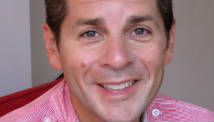 Dean Obeidallah
Dean Obeidallah Is the racial empathy gap in America growing? It seems so. At least judging by the chatter of comments surrounding the trial.
I heard repeatedly the statement from some Zimmerman supporters -- including a radio show host -- that "94% of black murder victims were killed by other blacks."
So instead of being empathetic to the Martin family -- whose son Trayvon was killed by Zimmerman -- the words discounted the killing by essentially saying that black people kill each other so much, why should we care about this one black kid?
On the other side, some people of color despicably threatened to harm or even kill Zimmerman after he was acquitted.
No matter what race you belong to, you have to admit this lack of concern for other races needs to be addressed.
Read Obeidallah's full column
Racial empathy means opening yourself to understanding why the other side believes what it does can help you find common ground.
Of course, this is not easy. It requires you to, at least temporarily, stop dismissing competing arguments. You don't have to agree with the opposing views, but you should listen and try to understand them.
Let's look at issues from the vantage point of another race: Why are they angry? Why are they afraid? What would you feel like if you lived in a community where the crime you see is committed almost exclusively by one race? Conversely, how would you feel if you were repeatedly profiled by the police and society simply because of your skin color?
If we don't get past the knee jerking defensiveness when discussing race, we will likely be burying more Trayvon Martins.
-- Dean Obeidallah, a former attorney, is a political comedian and frequent commentator on various TV networks including CNN.
Austin-Hillery: Echoes of "To Kill a Mockingbird"
In the iconic film, "To Kill a Mockingbird," Atticus Finch, a white lawyer defending a black man accused of attempting to rape a white woman in the deep South, is delivering his closing argument to an all-white-male jury: "In this country, our courts are the great levelers ... in our courts, all men are created equal," he says.
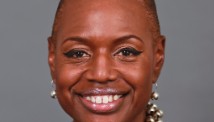 Nicole Austin-Hillery
Nicole Austin-Hillery Like the fictional defendant in the film, black America knows all too well that in this country, the promise of equal justice for all is often a hollow one. When black boys and men are killed by non-blacks, more often than not, justice will not be served.
Many black parents will try to explain to their children, especially their sons, what to make of the verdict, and they may be at a loss for words. How is it possible that a black child, walking where he had a right to walk, doing absolutely nothing wrong, could be pursued, confronted and ultimately shot dead by a neighborhood watch volunteer -- and the killer escape punishment?
Read Austin-Hillery's full column
White America cannot conceive of such a thing happening to its children, nor can it imagine that, were such a travesty to occur, the killer would escape punishment. But for black America, Trayvon Martin is the latest name on a long list of African-American men and boys whose non-black killers escaped justice in America's courts -- a list that runs from Emmett Till to Amadou Diallo to Oscar Grant to Sean Bell.
Often, the killers are never even charged and brought to trial, which is precisely the course that the Zimmerman case would have taken were it not for the protests of African-Americans and others across the country.
Black America's belief in the possibility of receiving justice from our legal system is eroded by every verdict that fails to hold a killer who is not black accountable for the death of a black man or boy.
My heart is heavy, not merely because Zimmerman was acquitted, but also because we as a nation have yet to make Atticus Finch's words ring true. Until we do -- until our courts are really "the great levelers" in which "all men are created equal," African-Americans killed by non-blacks will not find justice.
-- Nicole Austin-Hillery is the director and counsel of the Washington Office of the Brennan Center for Justice at New York University School of Law.
Gabriel: White or black, we see what we've experienced
In the courts and in society, we tend to think of racial bias as overt bigotry and imagine that the George Zimmermans and the Paula Deens of the world hold negative stereotypes of other races and intentionally think less of them as people.
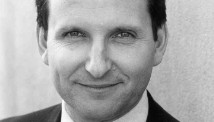 Richard Gabriel
Richard Gabriel Actual bias, however, operates in the brain in a much different way.
Despite our noble desire to love our fellow man, we are all suspicious of "The Other" -- in this case, the young man in a hoodie in the rain.
George Zimmerman has denied he holds any racial animosity. And that may be true. But with his statements, "F***ing punks. These a**holes, they always get away," he may have been unconsciously referring to a combination of race, youth, behavior, and clothing.
Trayvon Martin, in saying he was being followed by a "creepy-ass cracker," no doubt also racially labeled Zimmerman out of fear.
Read Gabriel's full column
There is a principle in social psychology called ingroup-outgroup bias, which is the tendency to judge members of your own group more favorably and others more harshly.
So when Juror B37 speaks to Anderson Cooper about not finding Trayvon Martin's friend Rachel Jeantel credible because she was "hard to understand" and "using phrases I had never heard before," it is obvious that it was hard for this juror to relate to this witness.
And it is a combination of skin color, idiom, nonverbal behavior, and personality that causes this cultural outgroup divide. This juror did not know about Rachel Jeantel's underbite, or that she grew up speaking Spanish and Creole.
Juror B37 spoke about Zimmerman's justified actions, his state of mind, her sympathies for him as well as the deceased Martin. In jury selection, she spoke about Sanford protests as "rioting." This juror could more easily relate to Zimmerman as the neighborhood watch volunteer trying to protect his neighborhood.
Nearly 20 years ago, when I was working for the defense on the O.J. Simpson case, much was made about the racial makeup of that jury -- made up of nine blacks, two whites and one Hispanic. But it was not just the skin color of those jurors that determined that verdict. Three-quarters of those jurors had personal experience with the police profiling, planting evidence, and engaging in other mistreatment.
We see what we have experienced. So we see what we want to see, whether we are a white juror in Sanford, Florida, or an African-American juror in Los Angeles.
It's time to stop pretending. It's time to make implicit bias explicit. If we're going to talk about race, let's talk about race without resorting to platitudes, righteousness or defensiveness. It's time to recognize that race is more than skin color. It is a rich tapestry woven with cultural, linguistic, behavioral and moral threads.
-- Richard Gabriel is the president of the American Society of Trial Consultants Foundation and president of Decision Analysis, a national trial consulting company. He has worked on the Casey Anthony and O.J. Simpson cases.
Follow us on Twitter @CNNOpinion.
Join us on Facebook/CNNOpinion.
{ 0 comments... read them below or add one }
Post a Comment